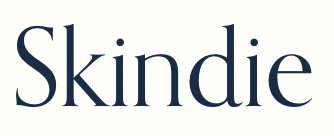Meet Nina Lyow, Associate Scientist at J&J Consumer
Q: What’s your background? Give us a quick snapshot of a day in your life at work?
A: I have a BS in chemistry and I’ve been working in the beauty/personal care industry for just under 2 years. I began working as a technical service chemist at a raw materials supplier and now I’ve found my place as an associate scientist in analytical chemistry at J&J Consumer. On a typical day you can find me in the lab developing a test method for active ingredients in skin health product prototypes. You’ll also find me tuning into a project meeting for a new product launch and giving updates on how stability studies are going to support the product’s shelf life specifications.
Q: What about the beauty industry excites you the most?
A: I’m really excited about innovators breaking into the beauty space with products that are grounded in their cultural heritage and commitment to being inclusive. Brands such as Briogeo, AAVRANI, and Pholk Beauty are just a few examples of minority owned businesses making strides in the beauty industry. It’s also great to see corporations taking the initiative to collaborate with minority owned brands and provide support through professional mentorship and business development support.
Q: What do you view as your biggest achievement in this industry?
A: I started my current role a few months ago, with a goal in mind to grow my analytical chemistry techniques so that I’d be equipped to represent the analytical department and support new product development. By learning from other analysts and gaining more lab experience, I’ve reached my goal and I’m currently the analytical and stability lead for a few upcoming skin health product launches at J&J. This is definitely my biggest achievement yet! I still have so much to learn in this role and I’m excited to see where my career takes me.
Q: Can you tell us about a failure (this could even be a beauty faux paus ;) ) and what you learned from it?
A: For most of my life I’ve struggled with caring for my skin because my skin type is oily and very prone to acne. Throughout my teenage years, I correlated oily skin with acne and I did everything I could to strip my face of oil such as washing my face often, exfoliating often, and not using moisturizer. After doing some more research, I realized that I had fallen for some pretty common oily skin myths. The root cause of my acne was actually genetics/hormonal based and harsh cleansers I was using that irritated my skin. From then on I’ve been using moisturizer formulas that match my skin type (e.g. gel based moisturizers) and cleansers that are more suited to my sensitive skin. Incorporating more sleep and a healthier diet into my life also contributed to clearer skin. I continue to do research in skin health so I can hopefully guide others to care for their skin too.
Q: Based on your personal experience in beauty, is there an insight (work related or other) that you’d like to share that may benefit our readers?
A: I entered the beauty industry as a chemist thinking that I would only be working with other chemists in my lab and work on developing new skin care products. While I do interact with mostly lab chemists on a daily basis, my work also leads me to interact with so many other business partners, including packaging, marketing, regulatory, consumer science and many more. From engaging with all of these groups on projects, I’ve learned that the analytical chemistry work that I do is really just one of many essential working parts that goes into launching a successful skin health product. Collaborating with others in cross functional teams has given me the opportunity to learn how to communicate my scientific learnings to an audience that may not be as familiar with the concepts and think about the business implications of my research. A tip for new scientists coming into the beauty industry: be open to learning from other people who may not have the same background as you.
Q: What aspects of the industry would you like to see more of? Or less of? (e.g., product, trend, etc.)
A: I’m most intrigued to see how growth in biotech beauty will allow us to be more sustainable in the beauty space. Biotech beauty either describes synthetic alternatives to natural ingredients or lab-made ingredients that fuse synthetic chemicals to natural ingredients. Ingredients made through biotechnology tend to be more sustainable than natural plant derived ingredients because they require less resources (water, land, energy) to produce. These ingredients also offer higher reliability and better quality control. With more education on this technology made known to consumers and transparent labeling, I’m sure we’ll be seeing more biotech beauty.
Q: What are some beauty products you cannot live without and why?
A: The skincare product that I cannot live without is sunscreen! Currently I apply Neutrogena’s Hydro Boost Water Gel Lotion SPF 30 every morning before I apply BB Cream. I cannot stress enough that applying sunscreen is so important for preventing skin cancer and premature aging of the skin. Also, my everyday makeup look is not complete without my Milk Makeup’s Lip + Cheek Cream Blush Stick in Quirk to add some brightness and warmth to my face.
Get in touch with Nina —
IG: https://www.instagram.com/ninalyow/
LinkedIn: https://www.linkedin.com/in/nlyow/

